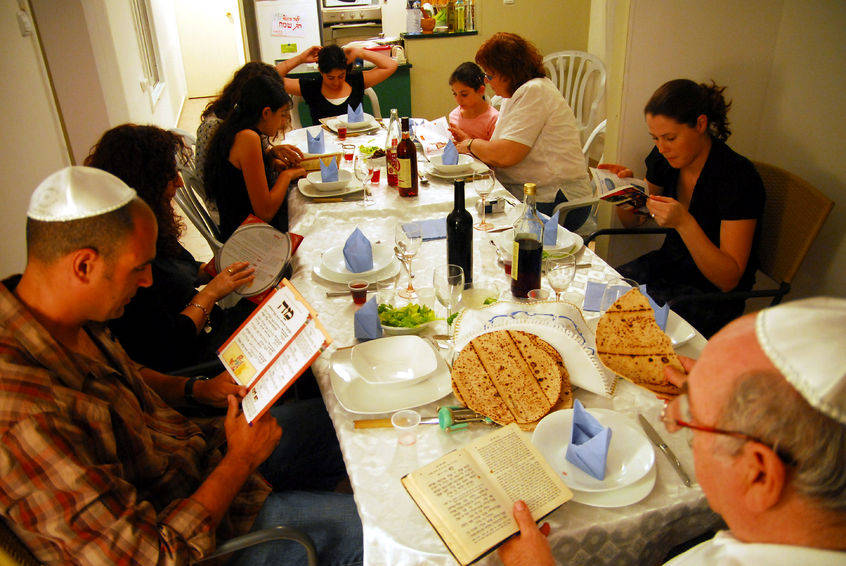A ruthless, greedy ruler versus a social justice activist who is the leader of an oppressed group.
Deceit, lies, betrayal and death result in an action packed, chariot-chasing, edge-of-your -eat escape by the oppressed.
Special effects to include fiery balls of ice and the parting of a large body of water.
Working title: Let My People Go!
Sound familiar?
Exodus, one of the five books of the Torah, and the escape from Egypt of the Hebrew slaves led by Moses is a story that has resonated with Jews and non-Jews since it was first put down in writing. It has been portrayed in books, in song, in theater and in movies.
Every year at Passover, Jews retell the story, but it is not a simple retelling. Through rituals and abstaining from certain foods we relive the Exodus as though it is happening to us today. In this way we keep the story very much alive through each generation; past to present to future.
What is it in this story that makes it so important, a touchstone for Jews and non-Jews?
The success of a smaller, seemingly less powerful group against a larger, more powerful entity is certainly appealing. We all like to root for the underdog. That this group, the Hebrew slaves, was fighting for their freedom and to be allowed to head toward their promised land, are a battle and a longing easily understood. Right versus wrong, good versus evil are concepts we learn as children. The Book of Exodus is rich with symbolism and lessons and learnings to guide and inform on many different levels, but the “main event”, the striving for freedom affects us perhaps the most.
It is a story that has played out repeatedly throughout history, through Pharaohs, and Caesars, and Kings, and Presidents. The American Revolution, with colonists wanting freedom from a repressive king and the right to establish their own country, is a similar story. Later, Africans forcibly brought to the United States to be enslaved drew inspiration and comfort from the story of Moses and the Hebrews as they struggled towards their freedom. Harriet Tubman, born into slavery, escaped to become an abolitionist, suffragette and humanitarian. She was known as Moses for her work with the Underground Railroad, having rescued more than 70 enslaved people.
Today, worldwide, populations of people still struggle for their freedom under oppressive regimes. Daily the news has gut-wrenching images of the battles facing refugees; the modern day people of exodus. These are the large, global reflections of this story of which we must remain aware and act to resolve.
There are also smaller more personal echoes of this story that make this so lasting. Each of us struggle with our own oppressor, our own Pharaoh. For some it may be alcohol or drugs or cigarettes. For others it may be a bad relationship or an estrangement or a violent partner. Maybe you eat too much or exercise too little or have other behaviors that limit your health. Maybe you anger easily or have a biting tongue. Perhaps you had to drop out of school or feel stuck in your job. What is it that is enslaving you, keeping you from being all you hoped and wished?
Judaism has always insisted that the Torah wasn’t written to be merely a history book, but instead was meant to be a guidebook. That is what the name Torah implies: it teaches, it guides. Sometimes it guides by telling us stories about our past. The stories are relevant because they can help shape us into our best possible selves.
As we head into Passover take the time to reflect, to take a personal accounting. Determine to rid yourself of your Pharaoh. It won’t be easy and it won’t happen overnight. The children of Israel toiled for hundreds of years before being released by Pharaoh and then it took them 40 more years to get to the promised land! Their path was never smooth, the hazards along the way plentiful, and at times their faith faltered mightily, but it remained.
• Patricia Turner Custard is a member of the Congregation Sukkat Shalom. “Living & Growing” is a weekly column written by different authors and submitted by local clergy and spiritual leaders.

